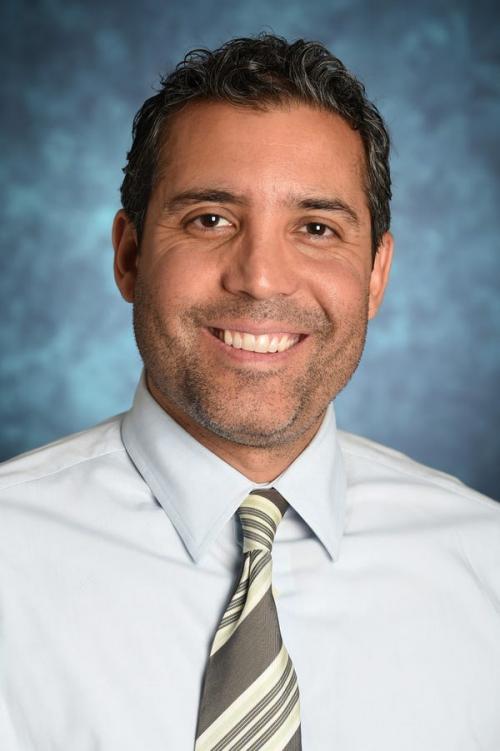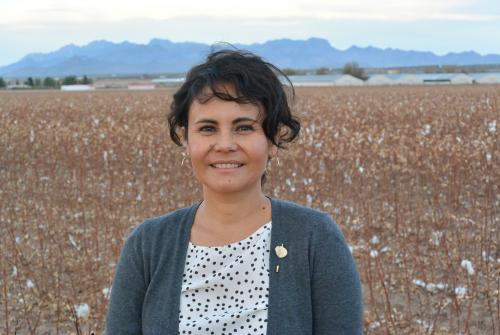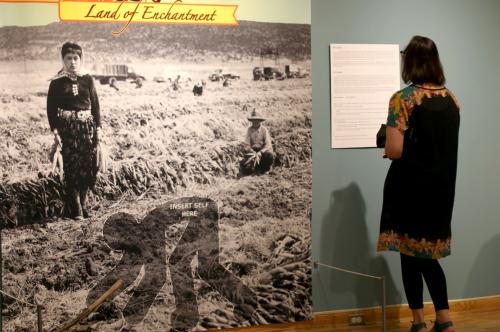https://newscenter.nmsu.edu/Articles/view/14391/nmsu-s-borderlands-and-ethnic-studies-interactive-virtual-art-exhibit-unveils-the-history-of-social-justice-issues-in-the-border?fbclid=IwAR32XYkXORWhlhDylx6Ay5kKlApJYa8Z-r7s6XG8wu0uPs93FntFMj9gejM

Nicholas Natividad, associate professor of criminal justice in the College of Arts and Sciences. (Courtesy Photo)

Dulcinea Lara, director of the Borderlands and Ethnic Studies program and associate professor of criminal justice. (Courtesy Photo)

A $50,000 grant from the W.K. Kellogg Foundation will support an 14-part art installment at New Mexico State University to engage the often-untold history of social justice issues in the border region. (Courtesy Photo)
The New Mexico State University’s Borderlands and Ethnic Studies program has received a $50,000 grant from the W.K. Kellogg Foundation to support an interactive virtual art exhibit to engage the often-untold history of social justice issues in the border region, enhancing a program whose enrollment has doubled since last year.
“This virtual art show comes at an excellent time when racial justice is being fought for in the streets and people’s hearts and minds are softening to the idea that a pluralistic and welcoming world for all is possible,” said Dulcinea Lara, director of the Borderlands and Ethnic Studies program in the College of Arts and Sciences.
NMSU’s Borderlands and Ethnic Studies program provides students a multidisciplinary graduate certification that aims to educate graduate students, including local teachers, to build their capacity to help students explore issues that are dividing the nation.
The program piloted last fall has doubled its enrollment with many students coming from out-of-state to learn about the field of ethnic studies from a border perspective.
“In light of recent events surrounding global and national racial justice movements, students have written to me directly asking how they can get into the program because they want to be equipped for the changing times and to learn about what it really means to “decolonize” and to be “anti-racist,” Lara said.
“This program will build awareness and cultural understanding of life at the U.S. and Mexico border, and allow students to examine the intersection of race, ethnicity and gender and its impact on our communities today,” says Victoria Tafoya, program officer with the Kellogg Foundation. “By engaging students and their families in the process, this exhibit will create a much-needed space for learning and healing.”
Lara, an associate professor of criminal justice, and fellow criminal justice associate professor Nicholas Natividad will lead the creation of the new museum installations titled, “Pasos Ajenos,” that will speak to the social inequalities and injustices along the border region in New Mexico. Lara and Natividad will be working with local artist and museum fabricator Daniel Aguilera, an NMSU alumnus, to create what they describe as an “inviting, beautiful and healing experience.”
“We hope the interactive museum exhibit will facilitate a much-needed dialogue on all the dehumanizing practices in the border region,” Natividad said. “We are at a critical moment in this country where we need to increase conversations on social justice and develop and build a “re-humanizing” curriculum in higher education. The exhibit and new Borderlands and Ethnics Studies program will achieve both.”
The 14-part installment will be open to the public, in both English and Spanish, later this fall at the NMSU Art Museum, pending the COVID-19 pandemic. Some of the installations featured will take a closer look at immigration policies, labor laws, environmental justice issues and the omission of Indigenous perspectives in the shaping of the borderlands.
“Foremost in our imagination and intent is that "healing" is central to our exhibit's purpose, Lara said. “Living in the borderlands comes with challenges presented by historical legacies of injustice and pain.”
“We want visitors of all ages to come and see themselves in an exhibit that speaks unapologetically to problems we face in this region in order to spark thoughtful dialogue about how to start mending oppressions and inequalities.”
With the help of art created by Aguilera, an NMSU alumni, “Pasos Ajenos,” will bring abstract and difficult-to-grasp concepts such as power and privilege to tangible products.
In 2021, the exhibit will launch “Pasos Ajenos” as a traveling exhibit with a showing at the Bernalillo Community Museum. A website for the project also will provide online curriculum, materials and ideas.
“In this time of online education, especially for K-12 schools in New Mexico and beyond, the new online version of "Pasos Ajenos" will fill a need for high-quality, thought-provoking education for students of all ages,” Lara said.
For more information about the Borderlands and Ethnic Studies Program visit, https://crimjust.nmsu.edu/borderlands-and-ethnic-studies-program/ or contact Lara at dulcinea@nmsu.edu.
About the W.K. Kellogg Foundation
The W.K. Kellogg Foundation (WKKF), founded in 1930 as an independent, private foundation by breakfast cereal innovator and entrepreneur Will Keith Kellogg, is among the largest philanthropic foundations in the United States. Guided by the belief that all children should have an equal opportunity to thrive, WKKF works with communities to create conditions for vulnerable children so they can realize their full potential in school, work and life.